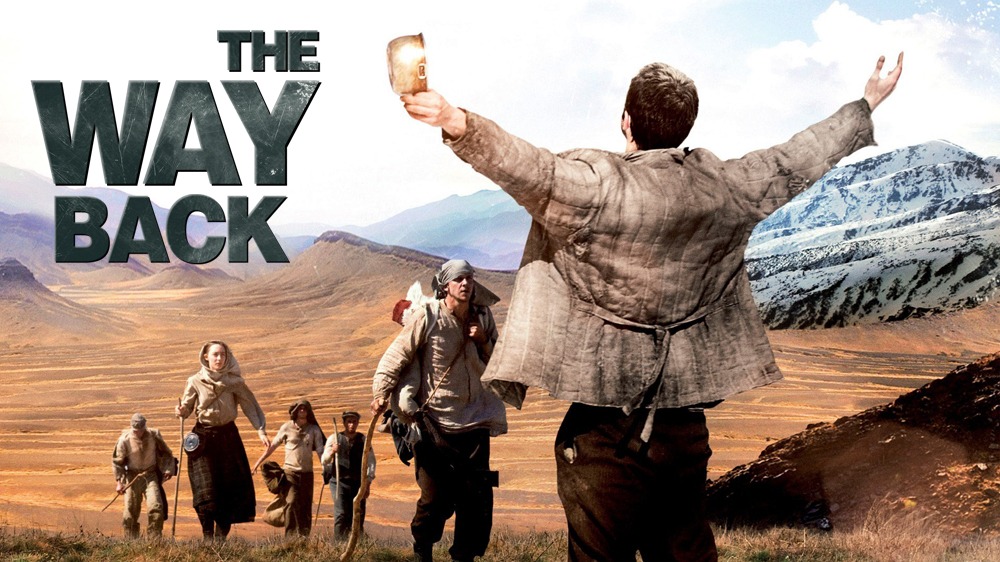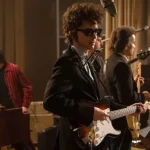The Way Back (2010)

The Way Back (2010), directed by Peter Weir and co-written by Weir and Keith Clarke, is a gripping survival drama that explores themes of endurance, hope, and the quest for freedom. Based on true events, the film recounts the harrowing journey of a group of prisoners who escape from a Siberian labor camp during World War II and embark on a perilous trek across thousands of miles to freedom in India. With its powerful narrative, stunning cinematography, and compelling performances, The Way Back stands out as a poignant and evocative exploration of human resilience.
The film begins in 1940, as a group of diverse prisoners—including Polish, Russian, and other nationalities—are held captive in a brutal Soviet labor camp. The central character, Janusz Wieszczek, portrayed by Jim Sturgess, is a Polish soldier imprisoned for allegedly betraying his country. His story is pivotal as he leads the group in their audacious escape. The ensemble cast also includes Ed Harris as Mr. Smith, a hardened American inmate; Colin Farrell as the volatile and morally ambiguous Khabarov; and Saoirse Ronan as Irena, a young woman who joins the escapees. Each character brings depth and complexity to the narrative, highlighting different facets of human endurance and morality.
Peter Weir’s direction is marked by a meticulous attention to detail and a deep understanding of the human spirit. The film’s narrative is driven by the physical and psychological challenges faced by the escapees as they traverse harsh environments, including the freezing Siberian wilderness, the vast Gobi Desert, and the rugged Himalayas. Weir’s portrayal of these landscapes not only serves as a backdrop but also symbolizes the formidable obstacles that the characters must overcome. The use of natural settings enhances the film’s realism and immerses the viewer in the characters’ struggles.
The cinematography, by Russell Boyd, plays a crucial role in conveying the vastness and harshness of the environments. The sweeping shots of the Siberian snowfields, the arid expanses of the Gobi Desert, and the treacherous mountain ranges of the Himalayas create a vivid sense of the journey’s scale. Boyd’s work captures both the beauty and the brutality of the landscapes, reflecting the characters’ inner turmoil and resilience.
The film’s script, co-written by Weir and Keith Clarke, effectively balances character development with the broader narrative of survival. The dialogue is sparse but impactful, reflecting the harsh realities of the characters’ situation and their internal conflicts. The script delves into themes of camaraderie, betrayal, and the search for redemption, exploring how the escapees’ pasts influence their actions and decisions. The film’s pacing is deliberate, allowing for moments of introspection and character interaction amidst the relentless struggle for survival.

The performances in The Way Back are integral to its emotional impact. Jim Sturgess delivers a nuanced portrayal of Janusz, capturing his transformation from a despairing prisoner to a determined leader. Ed Harris’s performance as Mr. Smith is marked by a rugged authenticity, portraying a man hardened by years of imprisonment yet driven by a sense of purpose. Colin Farrell’s portrayal of Khabarov provides a dynamic and often volatile presence, adding tension to the group’s journey. Saoirse Ronan’s role as Irena offers a poignant counterpoint, representing innocence and vulnerability amidst the harsh realities of their journey.

The film’s score, composed by Burkhard Dallwitz, complements the visual and emotional aspects of the story. The music enhances the film’s atmosphere, underscoring moments of tension, despair, and hope. The score’s evocative melodies contribute to the film’s overall sense of epic scale and personal struggle, reinforcing the themes of endurance and redemption.
The Way Back is also notable for its exploration of historical and philosophical themes. The film sheds light on the harsh conditions of Soviet labor camps and the broader context of World War II, providing a historical backdrop to the characters’ journey. It also engages with existential questions about the nature of freedom, survival, and the human spirit’s capacity for resilience. The escapees’ journey serves as a metaphor for the struggle for self-liberation and the quest for redemption, reflecting the broader human experience of overcoming adversity.

In conclusion, The Way Back is a remarkable film that combines historical drama, survival adventure, and deep character study. Directed by Peter Weir, the film stands out for its vivid portrayal of a grueling journey, its complex characters, and its exploration of universal themes of endurance and redemption. Through its powerful performances, striking visuals, and evocative score, The Way Back offers a moving and immersive experience that resonates with audiences and underscores the indomitable nature of the human spirit.










